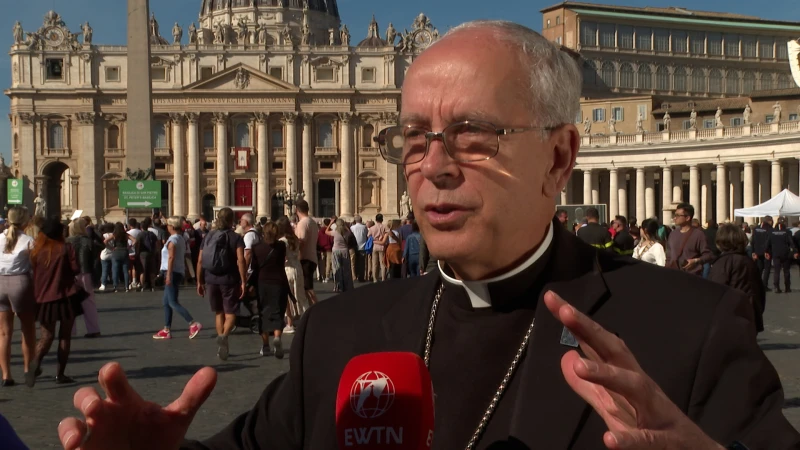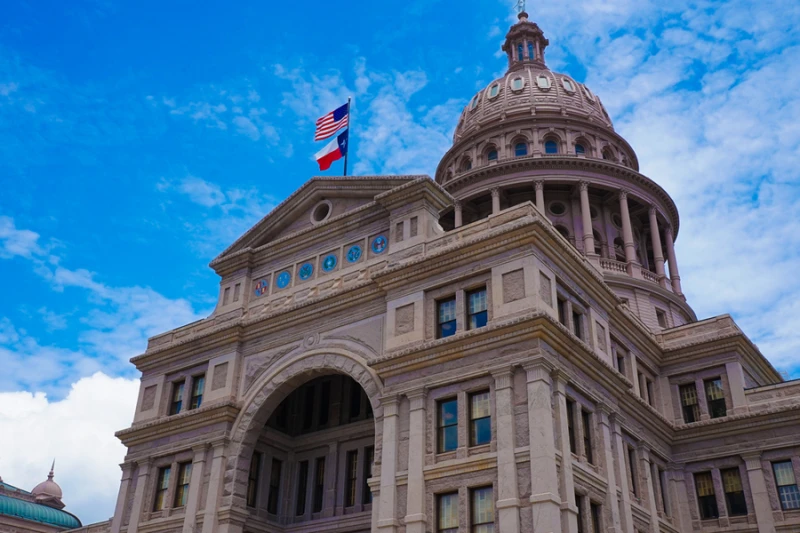

Bishop Mark Seitz of El Paso, Texas, speaks with EWTN News on Oct. 9, 2025, at the Vatican. / Credit: EWTN News
CNA Staff, Nov 11, 2025 / 11:10 am (CNA).
Legislation that would provide protections for people lacking legal immigration status won endorsement from Bishop Mark J. Seitz of El Paso, Texas, who has served as chair of the U.S. Conference of Catholic Bishops’ Committee on Migration.
The bill (HR 4393), which would not lay out a direct path to citizenship, would give people who lack legal status the chance to earn it through labor and financial penalties if they lack a criminal record. It would apply to people who entered the United States before 2021.
The measure would authorize funding for border security and create centers for asylum seekers during consideration of their case. It would require asylum cases to be completed within 60 days.
Rep. María Elvira Salazar, R-Florida, sponsored the measure, which she named the Dignity Act and first introduced in 2022. Rep. Veronica Escobar, D-Texas, cosponsored the measure, along with 22 other members of Congress. No hearings or other legislative action has been scheduled.
Seitz, who is expected to address fellow bishops Nov. 11 about immigration, said in a joint statement with Salazar in August that he is “deeply grateful to Congresswoman Salazar, Congresswoman Escobar, and their colleagues for this sustained commitment to working across the aisle.”
Seitz said: “Pope Leo XIV has emphasized the responsibility of all political leaders to promote and protect the good of the community, the common good, particularly by defending the vulnerable and the marginalized. Under our current system, families across our nation are living in fear. Bipartisan proposals such as the Dignity Act are a step toward fulfilling the call made by our Holy Father to offer a better way forward — one that begins and ends with respect for the God-given dignity of every person.”
The National Hispanic Christian Leadership Conference, comprising over 42,000 affiliated churches, has endorsed the measure. The U.S. Chamber of Commerce, National Immigration Forum, Business Roundtable, and the Council for Christian Colleges & Universities also are backing the bill.
The Federation for American Immigration Reform has voiced opposition to the measure, saying it would forgive illegal entry and allow authorities to waive offenses such as certain controlled substance crimes and prostitution.
The group criticized the bill’s proposal to create the Dignity Program to provide a renewable seven-year grant of deferred action, saying it is likely that future legislation would attempt to provide a direct path to citizenship if “Dignity status” was granted.
Read More
